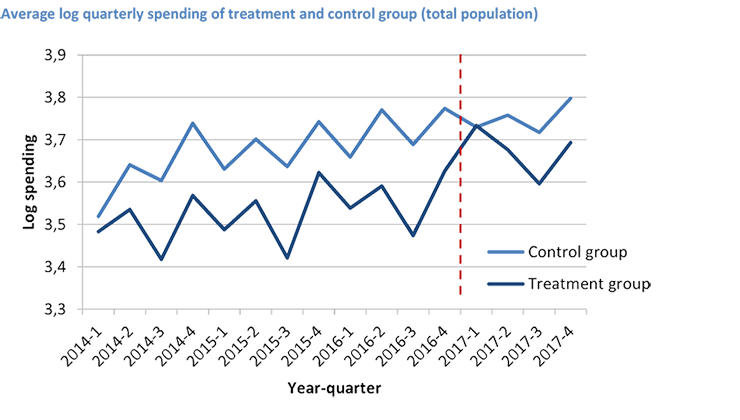Publications
Author
Treatment responses of mental health care providers after a demand shock

Can your house keep you out of a nursing home?

Selection and moral hazard effects in healthcare
The effect of reinsuring a deductible on pharmaceutical spending: A Dutch case study on low-income people
The basic health insurance in the Netherlands includes a mandatory deductible of currently 385 euros per adult per year. Several municipalities offer a group contract for low-income people in which the deductible is reinsured, meaning that out-of-pocket spending under the deductible is covered by supplementary insurance. This study examines to what extent such reinsurance leads to higher pharmaceutical spending. →

Causes of regional variation in Dutch healthcare expenditures: evidence from movers
We assess the relative importance of demand and supply factors as determinants of regional variation in healthcare expenditures in the Netherlands. Our empirical approach follows individuals who migrate between regions. We use individual data on annual healthcare expenditures for the entire Dutch population between the years 2006 and 2013. →

Does managed competition constrain hospitals’ contract prices? Evidence from the Netherlands
In the Dutch health care system health insurers negotiate with hospitals about the pricing of hospital products in a managed competition framework. In this paper, we study these contract prices that became for the first time publicly available in 2016. The data show substantive price variation between hospitals for the same products, and within a hospital for the same product across insurers. →
Cost-Sharing Design Matters: A Comparison of the Rebate and Deductible in Healthcare
Since 2006, the Dutch population has faced two different cost-sharing schemes in health insurance for curative care: a mandatory rebate of 255 euros in 2006 and 2007, and since 2008 a mandatory deductible. Using administrative data for the entire Dutch population, we compare the effect of both cost-sharing schemes on healthcare consumption between 2006 and 2013. →
Premium levels and demand response in health insurance: relative thinking and zero-price effects
In health care systems with a competitive health insurance market, governments or other sponsors (e.g. employers) often subsidize premiums to encourage enrolment. These subsidies are typically independent of plan choice leaving the absolute premium differences in place so as not to distort consumer choice of plan. →
